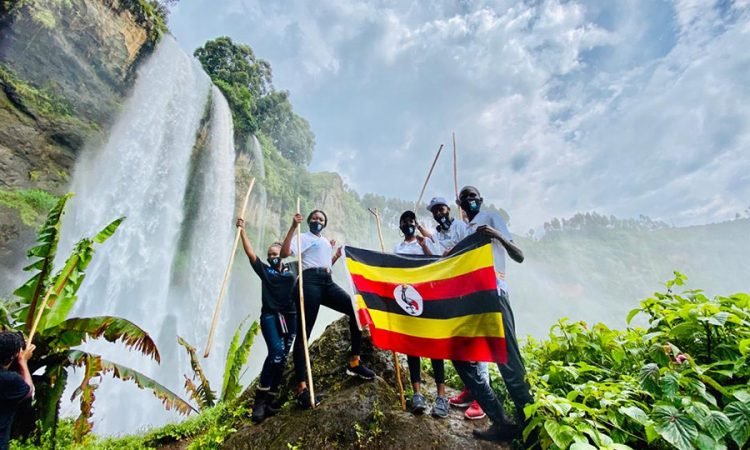In a world where English dominates keyboards, hashtags, and tweets, one might wonder—does a local language like Luganda still have a place in the digital realm? The answer is a resounding yes. The beauty of speaking Luganda in a digital world lies not just in preserving heritage but in reimagining identity, connection, and empowerment in the age of the internet.
Just imagine logging into Facebook, WhatsApp, or X (formerly Twitter) and seeing a heartfelt post in Luganda. The rhythm. The warmth. The way a simple “Gyebale ko” conveys so much more than just “Well done.” It sparks a smile. It feels like home. And that, right there, is where the magic lies.
Why Uganda’s Voice Matters Online
Uganda is a multilingual country with over 40 spoken languages, but Luganda is among the most widely used, especially in central regions. As the primary language of the Baganda, Uganda’s largest ethnic group, Luganda is spoken by more than 8 million people and understood by millions more. It’s the lingua franca in many parts of the country, including the capital Kampala.
Yet, when it comes to the internet, mobile apps, or artificial intelligence, Luganda is often nowhere to be seen. This gap isn’t just a digital divide; it’s a cultural gap—a threat to storytelling, memory-keeping, and generational continuity.
If we are to truly embrace the digital age on our own terms, our languages must follow us into it. Preserving Luganda online is not just about nostalgia; it’s about agency.
Steps Already Taken to Digitize Luganda
The journey to bring Luganda into the digital space isn’t starting from zero. Several efforts—small and significant—have begun to bridge the gap between the physical and digital expressions of this beautiful language.
Tech Infrastructure Gaps
Most tech companies prioritize languages with large global user bases. Luganda, despite its local significance, is still seen as low priority by many international firms. This limits integration into voice assistants, AI, and software.
Lack of Standardization
Luganda, like many African languages, faces challenges in orthography—the standardized way of writing. Variants in spelling, grammar, and pronunciation across regions can complicate digital coding and translation systems.
Limited Digital Content
The internet thrives on content—blogs, videos, e-books, memes. But Luganda content remains sparse. Part of this is due to a lack of writing culture in local languages, but also because of the dominance of English in educational systems.
Keyboard & Typing Constraints
Typing in Luganda is not always straightforward. Some characters and tonal markings aren’t supported by default on most keyboards. This discourages users from using Luganda regularly in digital communication.
Mindset & Prestige Bias
For decades, English has been associated with progress, education, and status. Speaking Luganda online is often seen as informal or “village.” This sociolinguistic stigma prevents even fluent speakers from using it online unless it’s for humor or casual posts.
How We Can Help: A Collective Effort to Celebrate Luganda Online
The beauty of speaking Luganda in a digital world is a shared responsibility. Governments, tech companies, educators, content creators, and everyday users all have a role to play in keeping the language vibrant in modern contexts.
🔹 Educators & Schools
- Introduce Luganda digital literacy courses.
- Encourage students to create content (poems, blogs, vlogs) in Luganda.
- Collaborate with linguists to develop structured digital learning materials.
🔹 Tech Developers
- Build custom Luganda keyboards and predictive text systems.
- Integrate Luganda into AI voice assistants, such as Siri or Alexa.
- Expand translation tools with community input to improve accuracy.
🔹 Content Creators
- Write blogs, subtitles, or audio content in Luganda.
- Promote podcasts and YouTube shows that use the language fluently and respectfully.
- Use Luganda hashtags to grow community trends.
🔹 Government & Policy Makers
- Incentivize digital projects that promote local languages.
- Support digitization of cultural archives—songs, oral histories, folktales.
- Include Luganda in digital public service announcements and e-governance tools.
🔹 You and Me
- Speak Luganda online without shame.
- Comment, post, and engage in the language.
- Support creators and platforms that champion African languages.
Why It Truly Matters
Language is more than words. It’s identity. It’s memory. It’s love whispered between generations. When we speak Luganda online, we’re not just chatting—we’re preserving wisdom, rhythm, and worldview passed down for centuries.
Let’s imagine a world where a child in Toronto can learn their grandmother’s lullaby on a Luganda YouTube channel. Where a startup in Kampala can build a voice assistant that responds to “Tunyumya ki?” Where elders and youth can meet halfway—on a screen—bridging past and future in their mother tongue.
That’s the beauty of speaking Luganda in a digital world.
Final Thoughts & Call to Action
Uganda’s digital journey should not come at the cost of its cultural wealth. The beauty of speaking Luganda in a digital world lies in blending tradition with innovation, memory with media. Let’s not wait for others to validate our language—let’s lead the way.
👉 What can you do today? Start by leaving a comment in Luganda. Share a proverb. Recommend a Luganda app. Or better still—create your own Luganda content and tag us.
The internet needs more “Gyebale Ko”s. Will you be part of the movement?



Leave a Comment